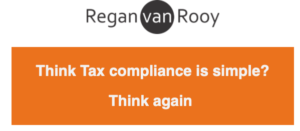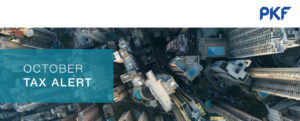Davis Tax Committee report
The Davis Tax Committee (the Committee) released a further report on “Tax Administration” on 13 November 2017 as part of the final six reports that were deliverable by the Committee.
The report has five chapters covering:
- Governance of the South African Revenue Service
- Base Erosion and Profit Shifting (BEPS)
- Treatment of high net worth individuals
- Taxpayer bill of rights
- The Office of the Tax Ombud
The report contains an analysis of each of these issues and associated recommendations.
One of the terms of reference for the Committee to consider was whether the present structure and operations of the South African Revenue Service (SARS) is congruent with the detailed tax policy recommendations the Committee has made to date, including SARS’ ability to deal with the various BEPS proposals.
Having regard to SARS’ current initiatives, the Committee has made a number of recommendations in order for SARS to effectively address and keep pace with international developments relating to BEPS. These recommendations include supporting the implementation by SARS of its strategic initiatives, such as undertaking 300 targeted audit interventions of large corporates, improving transfer pricing reporting for large corporates, and making legislative changes relating to record keeping of foreign transactions.
In addition, the Committee highly recommends that specialist tax assessors/auditors be tasked to look at all the companies in a group, as a whole, in order to evaluate complex inter-group transactions and structures that large groups are able to implement.
It is clear from the above that the emphasis will be on ensuring compliance by large corporates with international structures. The report provides an indication that there will be further emphasis on tax compliance in a global environment. International transactions will likely come under greater scrutiny and large multinationals can expect further audits and subject to anti-avoidance legislation.
In South Africa’s current economic environment, the pressure on SARS to collect taxes is as high as it has ever been, which has resulted in SARS flexing its muscles to bolster the fiscus.
Taxpayers on the receiving end have often experienced the vast powers that SARS has in its armoury, often leaving the taxpayer feeling helpless, notwithstanding that the taxpayer may not be at fault. The seemingly endless discretion, wide powers and the apparent disregard for taxpayers’ rights makes taking on SARS a futile exercise at times. At the core of this issue is that taxpayers are unaware of the rights that they are conferred by legislation and, as a result, cannot exercise those rights. It is trite that the law is not accessible or understandable to those it seeks to protect and this extends to taxpayer rights.
To address the above issue, jurisdictions such as the United States of America and Canada have promulgated a taxpayer bill of rights (TBOR) to overcome taxpayers’ concerns by drawing together the legal and administrative protections afforded to taxpayers by law, making them easier to find and understand.
In light of the above, the Committee recommends that there is a need for a TBOR in South Africa to not only guarantee taxpayers’ rights in their interactions with SARS, but also to make SARS responsible in its dealings with taxpayers and regulate the interactions and expectations of the relationship between SARS and taxpayers.
The Committee recommends that the TBOR should specifically contain the rights to:
- Finality
- Privacy and confidentiality
- Complete, accurate, clear and timely information
- Pay no more than the tax due
- Not to pay tax amounts in dispute before there has been an impartial review
- Legal representation
- Quality service
- Fair and just tax system
It is important to note that the TBOR does not create new rights, but only makes existing rights more accessible to taxpayers and their advisors and, importantly, to SARS and their officials.
A further consideration that is unclear at this point is whether the South African TBOR will include rights relating to administrative fairness. Currently, where SARS makes a decision that materially and adversely affects a taxpayer’s rights, and where SARS has not given reasons to the taxpayer for taking that decision, the taxpayer’s only right to recourse would be to pursue action under the Promotion of Administrative Justice Act (PAJA). There is no mechanism that exists either under the Income Tax Act or the Tax Administration Act (TAA) that allows a taxpayer to enforce their rights by reviewing a decision that was taken unfairly. The taxpayer would have to pursue relief under PAJA in terms of an entirely different process that would inevitably run concurrently to the tax dispute unless SARS agrees to stay proceedings.
Another notable concern is that once a taxpayer becomes engaged with SARS in a tax dispute, the proceedings are governed by the dispute resolutions rules that are promulgated under the TAA. The prescribed time periods in which documents are to be served are clear and both parties are obligated to comply with them. When the taxpayer does not comply with the rules, they are generally regarded as being out of time and SARS will go ahead and obtain a final order, or even begin the debt collection process (there are exceptions).
However the issue arises when SARS does not abide by these obligations, or prescribed time periods. The dispute does not simply go away and the taxpayer has very little recourse in this situation. The taxpayer may deliver a notice to SARS requesting them to comply within 15 days; if SARS does not comply with this request, the taxpayer may then approach the Tax Court for a final order. The Tax Court can either grant the final order if “good cause” is shown, or it can merely order SARS to comply within a stipulated period.
It will be interesting to note any comments that are made on the report issued by the Committee and the extent to which there are future legislative amendments to address any recommendations. It is clear though that future changes can be expected.





